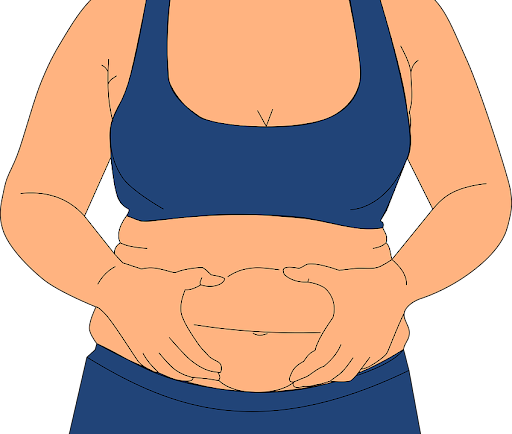Whenever a new season begins, we have different goals we want to achieve or changes we want to make in our lives. It is no surprise the holiday season comes with devouring the sweet, savoury and spicy delicacies and sedentary behaviour that might lead to extra weight gain, which will have us guilt-tripping at the end of the festive season but don’t worry; we have you covered.
Before proceeding with the guide, please click here to subscribe to our newsletter and invite your friends and loved ones to subscribe.
What we eat and drink can affect our body’s ability to fight infections and how likely we are to develop health problems later in life. In order not to fall ill or complicate health issues, there is a need to eat healthily. A healthy and balanced diet will provide many benefits during any season.
We should be honest with ourselves–nobody can help us manage our diet better than ourselves. We need to be determined to adhere strictly to the dos and don’ts of health and a balanced diet.
BELOW ARE HEALTHY GUIDES TO KICK-START YOUR HEALTHY JOURNEY
- Avoid starving: Celebrations often involve visiting friends and relatives for gatherings and meals. Avoid going on any visits on an empty stomach. Starving yourself in anticipation of a bigger meal will make it harder to go for healthier choices because everything on the table will look irresistible. As a result, you end up eating more than is intended. Pay attention to the type of food you eat and ensure you eat only some available food. If hungry, eat more fruits and vegetables, which you can always get from here.
- Try to avoid junk food. You must eat less junk during this period or prevent them. This will lower the number of stored fats in the body and control weight gain. Watch what you consume, especially if you have strict dietary rules to follow. This is also very important for people with medical cases such as diabetes, hypertension, obesity or those on a dietary plan.
- Avoid fatty food: reduce fatty food intake irrespective of your medical status. Being overweight may increase the risk of developing high blood pressure, diabetes, cardiovascular diseases and some forms of cancer. Instead, use vegetable oil as a substitute for cooking; eat more low-fat dairy products, chicken, fishes and avoid frying. Eating more vegetables and fruits is also very important.
- Limit sugar intake! Too much sugar is not healthy for anyone. This is bad for cancer patients, cancer survivors, diabetes patients, people with a family history of diabetes, obese people and those with other health complications. So, try as much as possible to limit refined sugar intake.
- Cut down on salt intake: Taking too much salt has no benefit for the body. Instead, it harms the body. Less salt in your diet may help you lower or avoid high blood pressure. Eating salt raises the amount of salt in the bloodstream and wrecks the delicate balance, reducing the ability of the kidney to remove water from the body.
- Avoid harmful use of alcohol: Uncontrolled alcohol intake harms the body. If taken in excess, it can also lead to accidents which might cause bodily harm or death. It may also lead to Holiday Heart Syndrome. Holiday Heart Syndrome is a term used to describe a heart condition associated mainly with excessive alcohol consumption and overeating.
- Have a controlled pattern of eating: Determine to have a controlled pattern of eating. Make sure you eat a healthy breakfast. It is important always to eat a healthy food portion to avoid overfeeding.
- Stay active and engage in physical activities: Do not sit in a place throughout the season. Be active, exercise, walk around and engage in physical activities. Also, make exercising part of your new year plans because this will help you lose weight gained during the festive periods and help with body metabolism and aid digestion. Make it a habit of continuing with your regular physical activities every morning before beginning the job for the day. This is the best way to deter weight gain. One hundred fifty minutes of moderate physical exercises or 75 minutes of intensive workout a week will go a long way.
- Drink a glass of water before every meal: drinking a glass of water before every meal is healthy for the body. Try to choose water over sweetened or carbonated drinks. Always remember that water is a good source of empty calories. Alcoholic beverages and soft drinks often served during this period are high in calories. If you really must drink, try to incorporate a few glasses of water in between servings to reduce the amount of other drinks you consume.
- You can never get enough of fruits: eating fruits is never enough for the body. It aids metabolism, helps in weight loss, provides immunity, lowers inflammation and oxidative stress and provides various minerals and vitamins. Always eat fruits after every meal, and remember you can always take fruit juice instead. Fruit juices are easier to take and can be served cold to quench thirst. You can get 100% natural fruit juice in the link for your loved ones and as a substitute for carbonated drinks.




1 Comment
Weldon
Good article and straight to the point. I don’t know if
this is in fact the best place to ask but do you guys have any
ideea where to employ some professional writers?
Thank you 🙂 Escape rooms hub